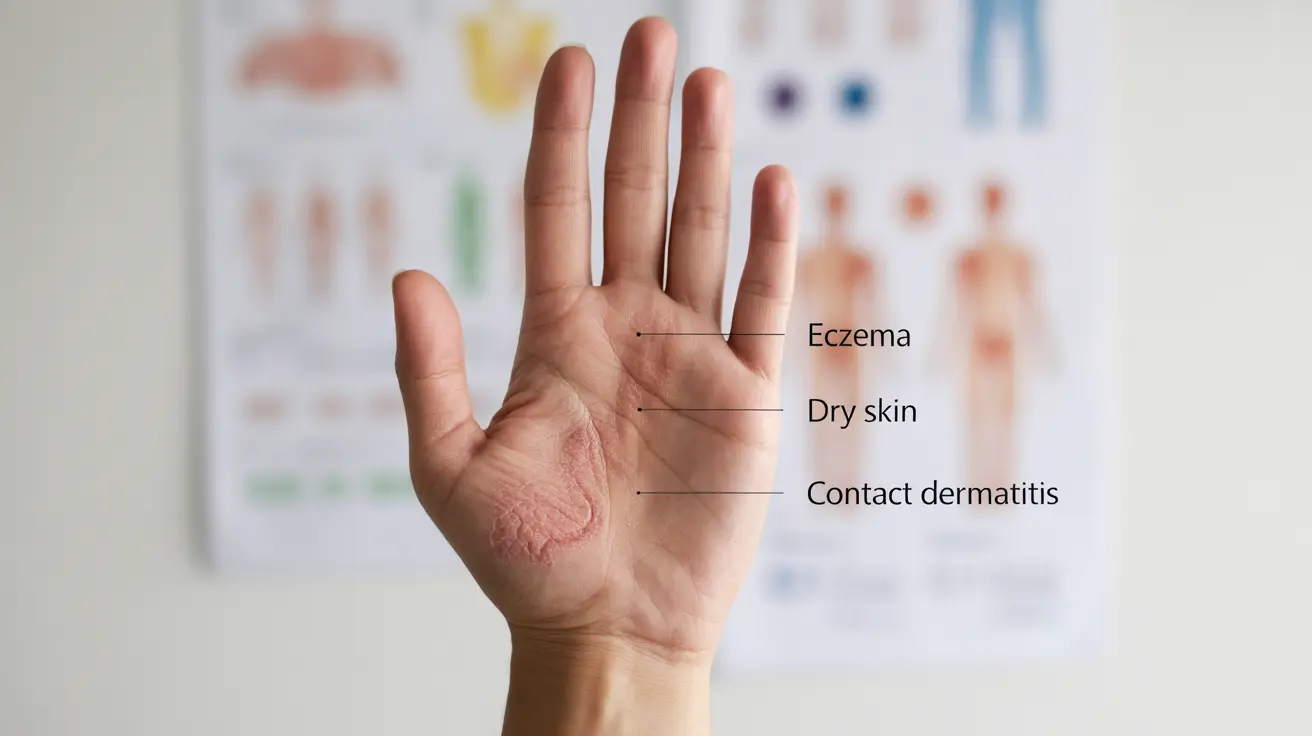If you've ever experienced persistent itching in your palms, you know how uncomfortable and distracting this sensation can be. Itchy palms can range from a mild annoyance to a significant concern, potentially indicating various underlying conditions that require attention. Understanding the causes and available treatments can help you manage this common yet bothersome symptom effectively.
In this comprehensive guide, we'll explore the various reasons behind itchy palms, discuss treatment options, and help you determine when it's time to consult a healthcare professional.
Common Causes of Itchy Palms
Several factors can contribute to itchy palms, ranging from simple environmental causes to more complex medical conditions:
Contact Dermatitis
This common skin reaction occurs when your palms come into contact with irritating substances such as:
- Harsh soaps and cleaning products
- Industrial chemicals
- Certain metals
- Personal care products
Dry Skin and Environmental Factors
Environmental conditions often trigger palm itchiness, particularly:
- Cold weather
- Low humidity
- Excessive hand washing
- Hot water exposure
Medical Conditions
Several health conditions can manifest with itchy palms as a symptom:
- Eczema
- Psoriasis
- Allergic reactions
- Dyshidrotic eczema
- Nerve disorders
Treatment Options and Relief Measures
Immediate Relief Strategies
When experiencing itchy palms, these methods can provide quick relief:
- Apply cool compresses
- Use over-the-counter anti-itch creams
- Take oral antihistamines
- Keep hands moisturized with fragrance-free lotions
Long-term Management
For ongoing palm itchiness, consider these approaches:
- Use gentle, hypoallergenic soaps
- Wear protective gloves when cleaning or working with chemicals
- Maintain proper hand hygiene without over-washing
- Keep skin well-moisturized, especially after washing
Prevention and Lifestyle Changes
Preventing itchy palms often involves making simple but effective lifestyle adjustments:
- Use lukewarm water instead of hot water
- Choose mild, fragrance-free soaps and moisturizers
- Avoid known irritants and allergens
- Maintain proper humidity levels in your environment
- Stay hydrated and maintain a balanced diet
When to Seek Medical Attention
While many cases of itchy palms can be managed at home, certain situations warrant professional medical evaluation:
- Persistent itching lasting more than two weeks
- Severe discomfort affecting daily activities
- Signs of infection (redness, swelling, warmth)
- Accompanying symptoms like fever or fatigue
- Changes in skin texture or appearance
Frequently Asked Questions
What are the most common causes of itchy palms and how can I tell which one I have?
The most common causes include contact dermatitis, dry skin, eczema, and allergic reactions. You can often identify the cause by considering recent exposure to irritants, examining the appearance of your palms, and noting any pattern in when the itching occurs. However, a healthcare provider can make a definitive diagnosis.
How can I effectively treat and relieve itching on my palms at home?
Effective home treatments include using cool compresses, applying over-the-counter hydrocortisone cream, taking antihistamines, and keeping hands well-moisturized. Avoiding triggers and using gentle skincare products can also help manage symptoms.
When should I see a doctor about persistent or severe itchy palms?
Consult a healthcare provider if itching persists for more than two weeks, severely impacts your daily activities, or is accompanied by signs of infection, severe pain, or systemic symptoms like fever.
Can itchy palms be a sign of diabetes or other serious health conditions?
Yes, itchy palms can sometimes indicate underlying health conditions, including diabetes, liver disease, or nerve disorders. If you experience persistent itching along with other unusual symptoms, it's important to seek medical evaluation.
What lifestyle changes or preventative measures can help reduce the risk of itchy palms?
Key preventative measures include using gentle skincare products, maintaining good hand hygiene without over-washing, protecting hands from harsh chemicals and extreme temperatures, staying hydrated, and managing stress levels effectively.




